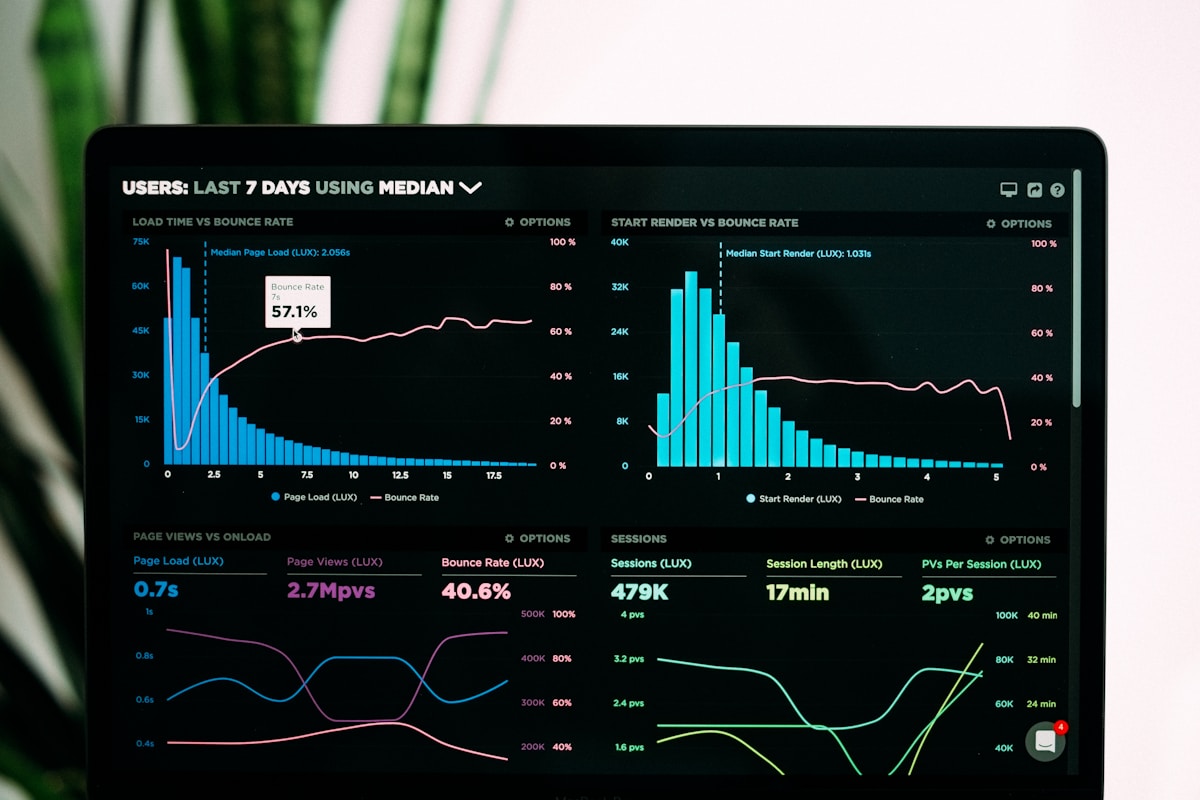Real Estate CRM Setup Guide: From Lead Capture to Closed Deal in One System


title: "Real Estate CRM Setup Guide: From Lead Capture to Closed Deal in One System"
slug: crm-setup-guide-real-estate
author: Cole Neophytou
date: 2025-11-30
updated: 2025-11-30
excerpt: "Complete real estate CRM setup guide covering system selection, configuration, lead capture, automation, and workflow optimization for maximum lead conversion."
tags: ["CRM", "lead management", "real estate technology", "automation", "workflow", "database management"]
category: "technology"
readingTime: 12
keywords: ["real estate CRM", "CRM setup", "lead management system", "real estate database", "CRM automation"]
metaTitle: "Real Estate CRM Setup Guide | Lead to Closed Deal System"
metaDescription: "Complete guide to setting up a real estate CRM system. Cover platform selection, lead capture, automation workflows, and conversion optimization."
The difference between a $500K/year agent and a $1M+/year agent often comes down to one thing: systems. One has a sprawling mess of spreadsheets, email folders, and sticky notes. The other has a professional CRM that tracks every lead, automates follow-up, and ensures nothing slips through the cracks.
A CRM isn't just a database. It's the nervous system of your business. Every lead interaction, every follow-up, every transaction detail flows through your CRM. This guide walks you through selecting, setting up, and optimizing a CRM system that will transform how you manage business.
Your memory isn't enough. Once you have 100+ active prospects, remembering who said what, what stage they're in, and what they need next becomes impossible. A CRM remembers for you.
Follow-up consistency is tracked automatically. Without a CRM, follow-up is sporadic and inconsistent. With a CRM and automation, every lead gets systematic follow-up regardless of your schedule.
Conversion rates improve 25-50%. Real estate agents using CRM systems close 25-50% more deals than those without. Better tracking = better follow-up = more closed transactions.
You can scale without adding staff. The #1 bottleneck for growing agents is managing leads. A CRM + automation allows you to handle 2-3x more leads without working harder.
You create leverage for team growth. When you eventually build a team, your CRM becomes the system that trains new agents and ensures consistent client experience.
For Solo Agents (0-50 transactions/year):
Best options: HubSpot (free tier), Zoho (affordable), Follow Up Boss (real estate specific)
Cost: $0-200/month
Setup time: 5-10 hours
Complexity: Low
For Growing Agents (50-100 transactions/year):
Best options: Follow Up Boss, Vulcan Post, Wise Agent, Real Estate Webmasters
Cost: $200-500/month
Setup time: 20-40 hours
Complexity: Medium
For Teams (100+ transactions/year):
Best options: Salesforce (with real estate config), Market Leader, Real Estate Webmasters, Inside Real Estate
Cost: $500-2,000/month
Setup time: 40-80 hours
Complexity: High
HubSpot
Follow Up Boss
Zoho CRM
Wise Agent
Real Estate Webmasters
Recommendation for Most Agents: Start with Follow Up Boss or Wise Agent if you want real estate-specific, or HubSpot if you want maximum flexibility.
Days 1-2: Evaluate Top 3 Platforms
Days 3-4: Purchase and Initial Setup
Days 5-7: User and Roles Setup
Days 8-10: Custom Fields and Organization
Days 11-14: Lead Source and Campaign Setup
Days 15-17: Website Form Integration
Days 18-21: Social Media and Ad Integration
Days 22-25: Build Email Sequences
See blog post #32 for complete email sequence templates.
Days 26-28: Create Task Automation
Day 29: Create Deal Pipeline
Days 30-32: Create Reports and Dashboards
Days 33-35: Data Migration and Testing
Trigger: Lead submitted through website, Facebook ad, or manual entry
Automation:
Manual: Agent calls within 2 hours
Trigger: Agent marked lead as "contacted" and "interested"
Automation:
Trigger: Lead marked "active buyer" or "active seller"
Automation:
Trigger: Deal moved to "under contract" status
Automation:
Trigger: Deal marked closed
Automation:
Trigger: Lead has no activity for 14 days
Automation:
Weekly Tasks:
Monthly Tasks:
Quarterly Tasks:
Step 1: Export Existing Data
Step 2: Clean Data
Step 3: Prepare for Import
Step 4: Execute Import
Step 5: Segment Imported Leads
Essential Integrations:
Highly Recommended:
Nice to Have:
Mistake #1: Overcomplicated Setup
Start simple. Add complexity only when you need it. A simple CRM used consistently beats a complex one used sporadically.
Mistake #2: Not Training on the System
Most CRM abandonment happens because agents weren't properly trained. Budget 2-4 hours of training time. It pays for itself immediately.
Mistake #3: Bad Data Quality
Garbage in = garbage out. Establish data entry standards. Require complete information before marking lead as "contacted."
Mistake #4: Not Using Automation
Your CRM's automation features are where the real value is. Don't just use it as a database. Automate email sequences, task creation, and workflows.
Mistake #5: Ignoring Reports
Your CRM should tell you:
Review reports monthly and adjust based on data.
Mistake #6: Poor Contact Follow-Up
A CRM only works if you actually follow up with leads. Be religious about following up within 2 hours of new leads. This dramatically improves conversion rates.
Q: How long does CRM setup really take?
A: Properly done: 30-40 hours over 4-5 weeks. Rushing setup creates problems later. Budget 10 hours per week for 4 weeks.
Q: Should I use my brokerage's CRM or get my own?
A: Get your own. Most brokerages' CRMs are basic and don't have the features you need. Only exception: if your brokerage provides a real CRM like Follow Up Boss.
Q: What's the minimum data I need to collect from each lead?
A: First name, last name, phone number, email address, lead source, and timeline. Everything else is secondary.
Q: How often should I follow up with leads?
A: Hot leads (timeline within 90 days): Contact within 2 hours, then every 2-3 days. Warm leads: Every 5-7 days. Cold leads: Monthly.
Q: Should I import all my old contacts into the CRM?
A: Yes, but segment them first. Old contacts from 2+ years ago may need different follow-up strategy.
Q: Can I use CRM without email automation?
A: You can, but you're missing 70% of the value. Email automation is what creates leverage.
Q: Should I use CRM on mobile?
A: Absolutely. Download the mobile app. You should be able to update lead status, log calls, and schedule follow-ups from anywhere.
Q: How do I prevent my CRM from becoming outdated data?
A: Archive deals after closing. Move inactive leads to "follow-up" status after 90 days. Purge email bounces monthly.
Q: What CRM metrics should I track?
A: Lead conversion rate, cost per lead, average days in pipeline, follow-up response rate, close rate, and revenue per source.
Q: Is it worth getting professional CRM setup help?
A: Potentially. If you have 5+ employees, spending $1,000-2,000 on professional setup saves 20+ hours and ensures best practices.
A properly configured CRM is the foundation of a scalable real estate business. Without one, you're relying on memory and spreadsheets. With one, you're building a professional business system that tracks every lead, automates follow-up, and ensures nothing slips through the cracks.
The 5-week implementation timeline in this guide, while structured, doesn't have to be rushed. Better to spend 5-8 weeks getting it right than 2 weeks and creating problems that plague you for months.
At Amazing Photo Video, we help real estate teams optimize their CRM workflows. Professional photography and video content in your CRM significantly improves lead conversion rates.
Start your CRM implementation this week. Within 30 days, you'll have a system in place. Within 90 days, you'll see measurable improvements in lead conversion and closed transactions.
Last updated: November 2025
Cole Neophytou is a professional real estate photographer and content creator at Amazing Photo Video.
Get the latest insights on real estate photography, videography, and marketing trends delivered to your inbox.
No spam. Unsubscribe anytime.
Professional real estate photography and videography services that help properties sell faster and for higher prices.



Complete guide to building and using performance metrics for real estate agents. Cover outcome, activity, and efficiency metrics that drive revenue growth and identify performance bottlenecks.
We're working on adding a comments system. In the meantime, feel free to reach out on social media!